Check out some books by your tutor Fiona Veitch Smith … (click on the book covers to find out more)
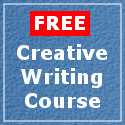 Hello everyone, welcome to the first session of our free online creative writing course. Over the next eight sessions we will be looking at different aspects of creative writing and trying our hand at various forms. I’d strongly encourage you to have a go at the exercises along the way, and please feel free to leave comments or ask questions at the end. If you have arrived on this page without first reading the home page and frequently asked questions page (on tab above) please go back and do so now. If you have read them, enjoy the course!
Hello everyone, welcome to the first session of our free online creative writing course. Over the next eight sessions we will be looking at different aspects of creative writing and trying our hand at various forms. I’d strongly encourage you to have a go at the exercises along the way, and please feel free to leave comments or ask questions at the end. If you have arrived on this page without first reading the home page and frequently asked questions page (on tab above) please go back and do so now. If you have read them, enjoy the course!
Creativity and Art
What is creativity? The Collins dictionary defines it as ‘the ability to cause something to exist’. Without getting into too much of an existential discussion, I would say that with every thought that is expressed, something has been created. It was Descartes who said: ‘I think, therefore I am’; well I would add, ‘I think, therefore I create’ (do you feel a God complex coming on?). But how do we express our thoughts? Sometimes we do it verbally, other times by body language and still again through what is loosely termed ‘art’.
Art takes place when a thought is expressed and fixed in a way that other people may experience it on an aesthetic level – through music, writing, painting, sculpture, choreography and so on. Many artists say that their best work takes place when they ‘by-pass’ the thought and simply express the feeling. This may be true, but for writers, who use a verbal medium, a feeling must first be converted into a thought before it can be put into words. Don’t over analyse the thought before you express it, as this way you can ‘channel’ the purest interpretation of the feeling, but some cognitive process needs to take place. Some writers prefer to mull over a thought and give it form before they put pen to paper – I’m one of them – but it’s good practice to try and switch off the ‘editor’ at least for the first draft. First response trigger exercises are useful in this regard and can release some unexpected words and images.
Exercise 1:
Write down your first response to these words or phrases:
- Blue ball
- And that’s when the sadness came
- Coffee
The first task of a good writer is to convert feelings into thoughts and then into words. This is the raw material that can then be converted into something more permanent. Some writers refuse to toy with their first drafts, believing their creativity will be diluted; I disagree. Allowing your critical mind to improve a piece of writing is where the craftsman meets the artist. Something produced only by the former will lack soul and something by the latter will lack form. Good writing is a combination of art and craft.
For public consumption
Art, of course, is highly subjective and one woman’s masterpiece is another woman’s unmade bed. We all have the ability to create, but whether or not our creation is ‘art’ must be left to the eye or ear of the beholder.
In this session we will look at how you can craft those creative thoughts into creative writing to share with other people. And that’s what sets ‘public’ writing apart from ‘private’ scribblings – there’s a perceived readership in mind. When I ramble on in my journal, I am the only one who will read it (hopefully!) so my only concern is getting my thoughts down on paper. The moment I want someone else to read it I begin to consider ways to improve the presentation and craft it into something more aesthetically pleasing. I consider which words may sound more colourful, whether or not my sentence structure is grammatically correct, whether I’m using evocative imagery, and so on.
Story, feeling or image?
What is it about those creative thoughts that you think might be of interest to other people? Do they speak of an eternal truth or a common experience? Do they make you laugh or cry? Do they suggest a story that will entertain or a poem that captures a moment that must be shared?
Exercise 2: In 50 words or less write down why you want to write then list three creative thoughts that you’ve had lately (each 10 words or less). These may be an image, a musing, a ‘truth’, a story, or so on. If you haven’t had any, take yourself for a walk and look around; what grabs your imagination? Browse through a newspaper or a magazine; do any stories or pictures catch your attention? Think back over your day; did anything funny, charming, shocking or unusual happen to you or someone you know?
Poetry or prose?
Some people are more suited to writing poetry than prose and some people do well at both. Although we won’t be discussing it in this course, other people are more suited to script. I’m one of them. I’ve had relative success as a prose writer and in fact have managed to earn a living from it, but it’s taken years of hard work to get to this point. I recently branched out into scriptwriting and found that I had much more of a natural ability. (If you’re interested in finding out more about scriptwriting, check out getting started in playwrighting). You may find that you’ve been trying to make it as a poet when actually you’re more suited to prose. Now I don’t want to pigeonhole anyone, but ask yourself the following questions:
- Are you more attracted to films than stills?
- Do you enjoy telling people ‘stories’ from your life?
- Do you prefer to read stories or poems?
If yes, to these, then you may be more suited to prose than poetry. If no, then the opposite may be true. If it’s ‘sometimes yes, sometimes no’ then perhaps you are suited to both. We shall be looking at how to write poems in more detail in session 7, but suffice to say, a poem is like a snapshot of a moment. If you can’t rest until you know what happened before and after, then prose may be your genre.
Exercise 3: Take one of the three creative thoughts you wrote down in Exercise 2, then list 20 separate words that communicate or describe that thought. Do not, at this stage, link the words into sentences. Once you have your 20 words use them in a poem of 16 lines or less. Then, take the same 20 words and work them into a short story of under 300 words. Which exercise came more easily? Which form has best communicated your creative thought?
Further Resources:
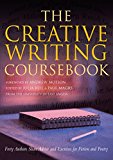
There are some excellent resources out there for creative writers. To get quick ‘starter’ images when your own well is dry I recommend The Writer’s Block by Jason Rekulak. I’m currently working through The Creative Writing Coursebook by Julia Bell and Paul Magrs and finding it very useful.
The next creative writing course session is how to write a short story. But before you move on to that, please feel free to leave a comment or ask a question in the box below.
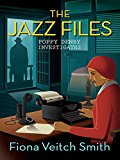
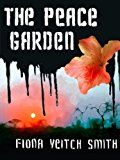
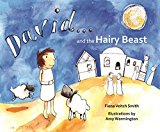
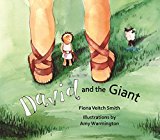
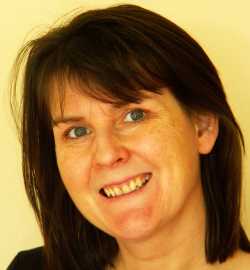 Welcome to The Crafty Writer's free online creative writing course, presented by Fiona Veitch Smith, a freelance journalist, editor, author, playwright, screenwriter and writing teacher. I hope that you'll see a dramatic improvement in the quality of your writing as you work through this course.
Welcome to The Crafty Writer's free online creative writing course, presented by Fiona Veitch Smith, a freelance journalist, editor, author, playwright, screenwriter and writing teacher. I hope that you'll see a dramatic improvement in the quality of your writing as you work through this course.
Hi there,
Could you please tell me how I can access your courses?
Thank you,
Sophia
Hello Sophia, this is the course. If you contacted me from the contact tab on the creative writing course site then you have already found it. Just read through the first page on the site and it will give you all the information you need. Happy writing! http://creative-writing-course.thecraftywriter.com
I made it through the first course. I think this is great, and I can feel myself getting back to my creative self again.
Mission accomplished! Well done Brian.
hello. I’ve got to say I love the first session of the course. It is very stimulating. It makes me realize that I could create a poem much faster than create a short story. All the while, what I’ve been doing is write a novel. Should I stop writing my novel? Or is my ability of poetry a help in writing one?
Don’t stop writing the novel Serge! Hopefully these exercises will enrich your writing and it will help you with the novel. Wait until you get to the section of ‘bringing your writing to life’ and you will see what I mean. Happy writing!
I find this course easy to learn. Thank you so much.
I am not looking to be an author. I would just like to write more professional reviews on books. I hope this helps me. Sadly, I have always had a problem grasping the concept behind creative writing.
Wow very interesting, I have only been on this for a short while and it has opened me up. wow
I was hesitant at first doing the excesrises, yet I di them all and I am amazed. Thank you again look forward to the next section.
Blessings
Glenda aka Lady G lol
Hi Glenda, glad it’s of some use! Good to be in touch.
Fiona
I just completed the first session and am anxious to contine. The exercises really help develope my thoughts and I am surprised at how I am able to respond easily. Thanks! Moving on to next session.
Glad to hear it. Hope the rest of the course is as fruitful. Happy writing!
Thanks for these lovely exercises. I’m short on cash and time at the moment and can’t attend college classes so this gives me room to grow. Thank you again for taking time to help others.
Thank you again for taking time to help others.
You’re welcome. Good luck with the creative flow and I hope the cash flow improves soon.
Fiona
I feel creative thoughts depend on our emotional level. I began writing poetry (limericks and ballads) 2 decades ago. Initially I was of the impression that poetry needs to be rhyming. A decade later I began writing humorous poems and after a another decade passed my thoughts became philosophical in nature. A few years before, I began to write quotes about life.
Apart from emotional level, I feel age is another factor which affects our creativity. When I look at stories I wrote during my childhood, they seem amateurish compared to the ones I write today. Lastly, I feel that experiences in life also affect our way of thinking. I tried my hand at non-fiction 2 years ago which is the flow of emerging as a book.
Amongst all my above experiments in writing, I find comfort writing fiction nowadays.
The exercises were very useful, creating a matrix from which to set down either a short story or poem. I was surprised at how easy writing the poem was, the words flew from my pen and encapsulated the thoughts very quickly indeed. This is a new concept to me and gives me a lot of food for thought as I have in the past shied away from writing poetry and stuck to short stories. Hmm!
I had the same experience when I first tried it. Glad it’s been useful.
I have always had a love and reverance for the written word. Throughout my life reading has been one of my greatest joys. Now in my early 60′s I would like to put my own words on paper with the hope of giving a gift to others. My greatest joys come from being in Nature experiencing all it has to offer. I truly feel somewhere deep within me the creativity is there only to be released. This is my first reaching out since college to write with meaning. Your first lesslon was fun I hope it leads me on the right path.
I just completed this first exercise and was shocked at how easy it was for me to formulate a short story from the 20-words rather than the poem. I actually didn’t realize how short a 300-word story would be until I looked and saw myself over the limit. I’m really new to writing and this was a very effective exercise for me!
I ham just doing exercise 3, and am astounded that I can and have written a poem using the 20 words. I have never tried before and thought poetry writing was not for me. I am about to tackle the prose, I have written stories before. Have just started this course but I love the experience already.
I love the program. I just finished Exercise 3. I had i always thought i sucked at poetry. I guess not because i got done with the poem quicker than i did the short story!
I was shocked that distilling the 20 words from an idea could lead so directly into both poetry and prose! I’ve written both on and off for years – purely for private exorcism of the need to write – but never thought of this as a way to start the process off. I’m also quite shocked at how more succinctly the poetry captures the feel of my original idea… although it doesn’t rhyme – does that stop it being poetry?
Glad it helped, Jackie. No poetry doesn’t have to rhyme. The post on my blog about free verse may give you some more insight http://www.thecraftywriter.com/2008/04/29/how-free-is-free-verse/
Hi, I just wanted to say I found this site yesterday and have really enjoyed it so far. I hope it will help me move on with my writing.
Where do we sign up for the course? Where does one actually write one’s assignments, in this comment box or…?
Hello Sheila. You don’t sign up for the course. It is for your own use to be done in your own time. Simply get started. You can do the assignments wherever you like. Most people I assume will do them in a notebook or on a computer. The comments box is for comments or queries about the course. This is not a tutored course and you will not receive feedback on your assignments. As you progress you will see the assignments are designed to help you self-critique. For more information please read the home page and the frequently asked questions page. Happy writing!
The computer and word processing sometimes make rewriting a lot more simple, but then you lose what you started with, so maybe there is a benefit of using a notebook. You get to look back and compare. I do like my rewrites better. Comparing them really does make a difference to just looking at a piece one has finished word processing.
I agree with you on that Sheila. So much is lost on the computer.
A very mind opening course so far. Thank you for providing it.
The last line if exercise 3 has a spelling error though lol. Sorry had to point it out. To not do is like trying to ignore an itch :-0
“Which form has best communicted your creative thought?”
I only wish I could spot my own mistakes as quick
Thanks for pointing it out!
I look forward to working through the course. Great information and exercises.